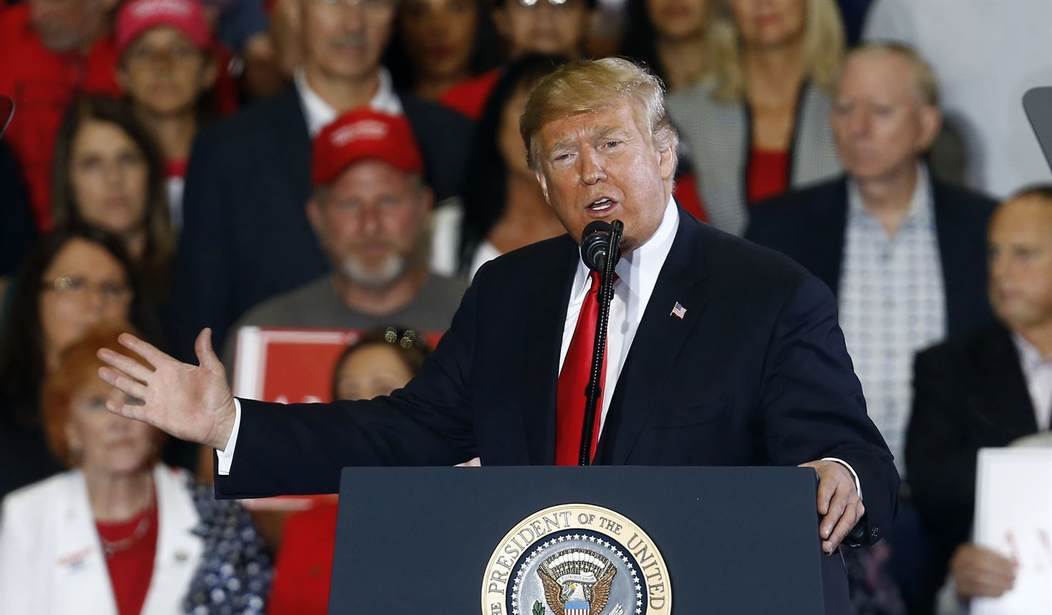A federal judge on Wednesday dismissed a defamation lawsuit filed against BuzzFeed over the publication of the Trump dossier in January 2017. Businessman Aleksej Gubarev filed the defamation lawsuit shortly after the article was published because he was named in the dossier but his name wasn't redacted. Gubarev argued he was defamed because of his name appearing in the document and article.
U.S. District Judge Ursula Ungaro ruled that BuzzFeed was not held responsible under the "fair report privilege," which protects the news outlet from liability because the dossier was the subject of official proceedings. Both Trump and then-President Barack Obama had been briefed on the situation and the FBI was investigating.
Ungaro also said the article was "fair and true" because the news outlet simple shared the dossier but didn't give an opinion on it.
Gubarev's attorney's argued that BuzzFeed needed to prove that the information about Gubarev was part of the FBI's investigation. The judge disagreed.
"Indeed, such a line-by-line review would curtail the scope of the privilege and thus restrict the press’s ability to serve its basic function,"Ungaro wrote. "As discussed above, the privilege exists to protect the media while they gather the information needed for the public to exercise effective oversight of the government."
Gubarev's attorneys plan to appeal the decision.
"First and foremost, nothing in today’s ruling by the Court suggests in any way that the allegations concerning Mr. Gubarev, Webzilla, or XBT Holding were true. Instead, the Court ruled on a narrow legal issue, finding that Buzzfeed had a privilege to publish the information even if it was false," Gubarev's lawyers said. "When we started this case, we knew that it would be a marathon and not a sprint. We remain convinced that, after appeal, this matter will be presented to a jury and that we will succeed in vindicating the Plaintiffs’ good names."
Recommended
BuzzFeed applauded the decision.
"When we published the Steele Dossier in 2017, we were met with outrage from many corners — a major news anchor and President Trump both deemed it 'fake news'; and several Russian businessmen, plus Michael Cohen, sued for defamation. Today, almost two years later, a federal judge has vindicated our decision," BuzzFeed News editor in chief Ben Smith said in a statement. "As Judge Ungaro affirmed in her ruling, a key principle underlying the First Amendment is that the public has a right to know about actions taken by its government. As we have said from the start, a document that had been circulating at the highest levels of government, under active investigation by the FBI, and briefed to two successive presidents, is clearly the subject of 'official action.'"
Here's how BuzzFeed says they got ahold of the dossier:
The case shed light on how exactly BuzzFeed News got hold of the dossier. Ungaro wrote that in late December 2016, reporter Ken Bensinger was shown a copy of the dossier by David Kramer, a former deputy assistant secretary of state, who had received it from Christopher Steele. Steele, a former British intelligence officer, had been hired by a private research firm, Fusion GPS, to look into ties between Russia and the Trump campaign; later reporting indicated that the work was paid for by a law firm representing Hillary Clinton's campaign and the Democratic National Committee.
Bensinger informed Mark Schoofs, an editor at BuzzFeed News at the time, and Schoofs directed reporters to investigate some of the allegations in the documents. The judge noted that BuzzFeed News did not investigate any allegations about Gubarev, and didn't try to contact him.
After CNN reported that the dossier existed on Jan. 10, 2017, but did not publish it, Bensinger and BuzzFeed News editor-in-chief Ben Smith made the decision to put the dossier online as part of an article about it. The article noted that the dossier "includes specific, unverified, and potentially unverifiable allegations."
Here's the official ruling:
This is a breaking news story. As more information becomes available, we will update this post.

























Join the conversation as a VIP Member